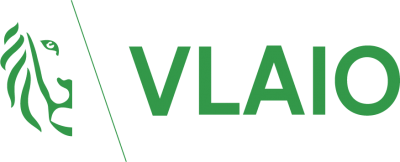Topics
We organise our actions in six thematic & strategic agendas:
Strategic Agendas:
Bio-economy
Circular Construction
Chemicals/Plastics
Manufacturing Industry
Food Chain
Water Cycles
Seven leverages provide additional support:
Leverage effects:
Lever Policy Instruments
Lever Circular Procurement
Lever Communication
Lever Innovation & Entrepreneurship
Lever Financing
Lever Jobs & Skills
Lever Research
What, why and how?
Why are we pursuing a circular economy?
Future visions 2050
How do we see our circular future?
About our management
Who steers what at Flanders Circular?
De Landgenoten
Land for farmers for local food production
De Landgenoten is a cooperative and foundation that buys agricultural land with the money of shareholders and donors, and then manages the land and rents it to organic farmers through long-term contracts. We also focus on advising (public) landowners to cultivate their land sustainably. On this land, we create space for more local and healthy food, opportunities for innovative farmers and for a lively and green countryside. This is good for our health, the local community and the environment. In this way, we want to encourage the transition from our current food production system to a more sustainable one, thus contributing to the circular economy.
At present, however, both private and public landowners (local authorities, OCMWs, church factories, etc.) still need to be made more aware of the importance of the transition to a more sustainable food production system. Farmland is still too often seen as a commodity, for its financial value, rather than as a raw material. Owners also often lack the right information. How do you as a landowner go about using your land in the circular agricultural economy? What do you have to take into account? What is a correct usage agreement for a farmer?
These are the questions we want to answer with the project 'Space for local food production in the circular economy'. In the first years of its existence, the focus was on building expertise, expanding networks and testing innovative practices for the release and more sustainable use of land. Now we want to offer all that knowledge to public landowners, inform local governments, and provide them with the right inspiring examples.
De Landgenoten
Partners CSA-netwerk, De Ideale Woning, Vereniging voor Vlaamse Steden en Gemeenten
Sectors
Themes
Organisations
Website
MOST IMPORTANT
RESULTS
- We developed several example cases of cooperation with public landowners and created three new successful forms of cooperation: 'land scan', 'land table' and 'search farmer'.
- We improved our contact management and developed a more targeted communication strategy: an updated website, inspiring video testimonials, printed matter, two campaigns to municipal authorities, dozens of telephone contacts, etc.
- We formed several farmer ambassadors who we could involve in our work. They give a face to the land issue and help us raise awareness.
- Our audience clearly expanded: we received exponentially more applications from farmers for land in 2019. In addition, private owners and engineering firms showed unexpected interest in our offer. We even received a donation of 8 ha of agricultural land.
MOST IMPORTANT
LESSONS LEARNED
- Finding affordable and suitable land for sustainable, local agriculture as part of the circular economy remains very difficult. The land market is 'saturated' and this makes our work time-consuming and challenging.
- Working with public landowners such as local governments takes time: decision-making is rather slow and, as an advisory party, we have to invest a lot of time before all noses point in the same direction.
- Not all farmers are willing to testify publicly about their search for land. Various aspects play a role in this, from reluctance to expose their situation to fear of consequences if their testimony is considered negative.
- Not all landowners are concerned about the land issue or see the added value of organic or local agriculture. Many landowners, including local governments, continue to sell farmland to the highest bidder, often under pressure from tight budgets.
WHAT DOES
THE FUTURE HOLD?
We realise more than ever that we are operating in a field where a long haul is a basic requirement. With the exception of a few pioneers, very few cities and municipalities currently have a sustainably developed food production strategy, let alone one in which 'space for farmers' is an objective.
That is why, in 2020, we want to focus even more on raising awareness and vision among public landowners and refine our communication strategy in that direction. We want to be a speaker at forums where intermunicipalities, spatial planners and civil servants come together, in order to inspire and inform more efficiently more people at the same time about local sustainable agriculture.
We also want to focus on citizens who can sensitise and activate their local authorities.
Furthermore, we want to address the cities and municipalities that include the Sustainable Development Goals (SDG) in their governance agreement. After all, with a sustainable, local agricultural project, they can realise no less than nine of those goals.
Finally, we deliberately chose not - yet - to bundle our experience and offer in a brochure for public landowners, but put our last energy and resources into the creation of a catchy short film of 't Groentehart.

















